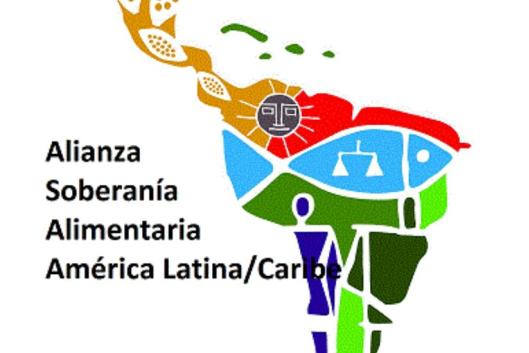The Fourth Special Conference of Social Movements of Latin America and the Caribbean for Food Sovereignty was held on May 2 and 3, 2014, in Santiago, Chile. The conference was organized by the Alliance for the Food Sovereignty of the Peoples of Latin America and the Caribbean, an important alliance of social movements encompassing indigenous peoples, peasant farmers, rural workers, artisanal fisherpeople, women, environmentalists and NGOs.
The Alliance for the Food Sovereignty of the Peoples of Latin America and the Caribbean is aimed at interconnecting social movement sectors from the countryside and the cities in order to join forces in the struggle for food sovereignty.
With the launching of the International Year of Family Farming by FAO and its priority concern of eradicating hunger and poverty in Latin America and the Caribbean, the different organizations that make up the Alliance felt it was important to meet and discuss the main considerations of social movements with regard to these issues.
The first consideration stressed by the Alliance is that the term family farming is insufficient. The sector that produces food on a small scale and contributes to the food sovereignty and security of the peoples of Latin America and the Caribbean is made up of men and women who are family farmers, peasant farmers, indigenous peoples and artisanal fisherpeople.
The social movements recognize and value FAO’s efforts to eradicate hunger and poverty. However, it is not possible to solve a problem without attacking its root causes. The model of large-scale industrial production and marketing based on monocultures and the use of toxic chemical pesticides and synthetic fertilizers is the primary driver of the land and income grabs that have forced thousands of people out of the countryside, destroying cultures and biodiversity while polluting the environment, with serious impacts on the water, soil and human health.
As a result, the social movements participating in the conference reaffirmed that only food sovereignty can eradicate hunger and poverty in the countryside. FAO should therefore consider the small-scale agricultural production of healthy food as an important part of the solution to two critical problems facing humanity today: hunger and poverty.
The conference participants agreed upon a number of key points that should be taken into account by FAO in the coming period. These include the demarcation of indigenous lands; a concrete and integral process of agrarian reform; the prioritization of public policies that promote food sovereignty (in areas such as small-scale processing industries, the development of artisanal fisheries, school food programmes, state subsidies and public procurement); the guarantee of the rights of salaried rural workers; and the eradication of slave labour.
Beyond the discussion that should take place through institutional channels for dialogue with FAO, the members of the Alliance reaffirmed their commitment to continuing the ongoing struggle for the production of healthy food, defending the land and native seeds, preserving biodiversity, protecting the environment, and feeding the world.
By Dayana Mezzonato of the Brazilian Landless Rural Workers Movement (MST) and La Vía Campesina.
The full text of the declaration adopted at the conference is available in Spanish at:http://www.biodiversidadla.
_la_Soberania_Alimentaria/
_detener_ya_la_destruccion_de_
